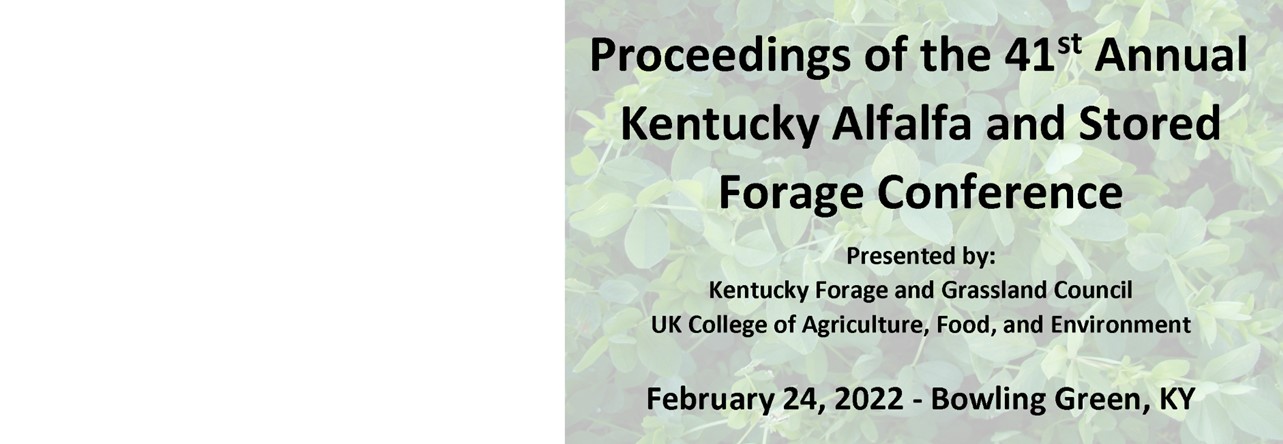Start Date
2-24-2022 9:15 AM
Description
Scott County Kentucky currently has a beef cattle herd of 28,509 head (USDA, 2017). These cattle utilize forage as a large part of their diets. Baleage is bales of wilted, high moisture forage which have been wrapped in several layers of UV‐resistant plastic and allowed to ensile like traditional chopped silage (Henning et al., 2021). Baleage has become another way for farmers to harvest and store forage to be used in cattle diets. It has some advantages over the traditional hay production in Kentucky. One advantage is it can be harvested, baled, and stored in a shorter period of time, which is ideal with Kentucky’s weather conditions. Baleage keeps a higher level of forage quality over time, unlike hay when it is loses nutrients through the drying process. Producers are still learning about best practices in producing baleage for livestock. If done incorrectly it can cause issues with storage, forage quality, spoilage, and even cattle death.
Included in
Harvest Timing and Moisture Determination: Forage Drying Rates and Moisture Probe Accuracy
Scott County Kentucky currently has a beef cattle herd of 28,509 head (USDA, 2017). These cattle utilize forage as a large part of their diets. Baleage is bales of wilted, high moisture forage which have been wrapped in several layers of UV‐resistant plastic and allowed to ensile like traditional chopped silage (Henning et al., 2021). Baleage has become another way for farmers to harvest and store forage to be used in cattle diets. It has some advantages over the traditional hay production in Kentucky. One advantage is it can be harvested, baled, and stored in a shorter period of time, which is ideal with Kentucky’s weather conditions. Baleage keeps a higher level of forage quality over time, unlike hay when it is loses nutrients through the drying process. Producers are still learning about best practices in producing baleage for livestock. If done incorrectly it can cause issues with storage, forage quality, spoilage, and even cattle death.

